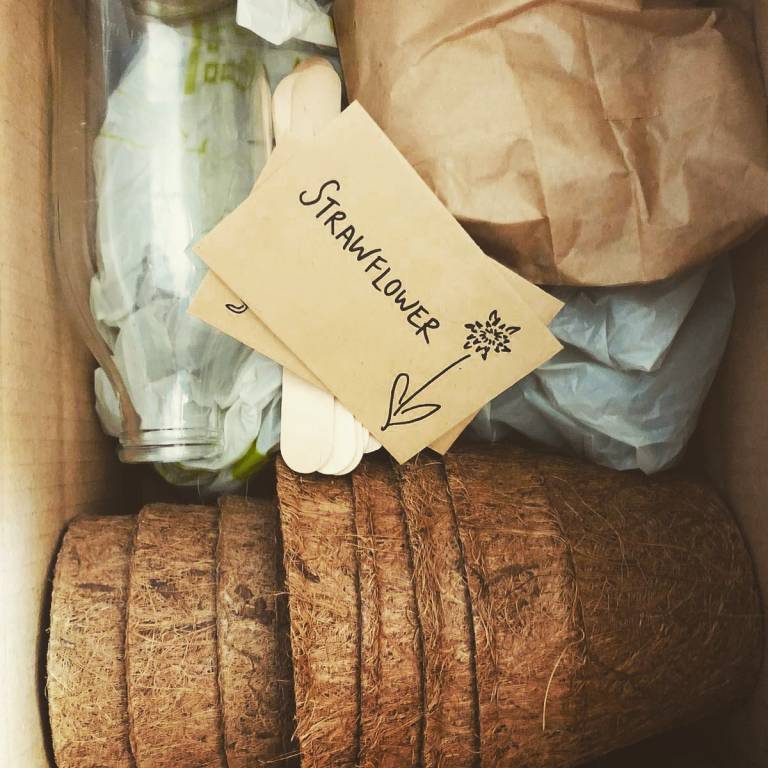Growing Sensations
23 April 2021
A new pilot creative health/sensory methodology project, run by Dr Dalia Iskander, begins in the Anthropology Department.

This term, twelve students from the Anthropology department are taking part in an innovative new pilot project run by Dr Dalia Iskander that aims to engage students in ‘double cultivation’ - growing students through the practice of growing in indoor urban settings and associated crafts. A recent parliamentary inquiry on Arts, Health and Wellbeing promotes the use of creative health in order to improve humanity, value for money and the overall effectiveness of health/social care systems. Accordingly, the Growing Sensations project will engage students in a home-based gardening project which will act as a springboard for a range of related creative activities, such as making clay pots, bread, balms and oils and other plant-based crafts, each with a specific wellbeing/sensory intention.
Students have been sent a bespoke wellbeing box containing an indoor gardening kit to grow herbs, flowers and medicinal plants in small indoor spaces and all the other necessary materials for making products. They will meet weekly online and carry out creative sessions with facilitators accompanied by discussions of the ideas behind each activity. Students and facilitators will carry out a participatory evaluation of the project using techniques such as photography, film and journaling. The final stages will involve collating ideas into a 2021-2 calendar of tips, recipes and skills for distribution to all 1st year students next year and the formation of a plan for more knowledge and resource sharing and scale-up (e.g. exchanging seeds/cuttings/resources; student-run workshops; a cross-faculty buddy scheme; fundraising etc.).
Read more
Creative Sensations will address the following questions:
- How does engaging in creative health activities (e.g. gardening, creative arts and crafts for therapeutic ends) impact the wellbeing of UCL anthropology students?
- How can these same activities be used to build practical skills in creative and sensorially-engaged anthropology and social science (e.g. confidence in research/evaluative methodologies such as gardening, drawing, photography, creative writing, cooking and practical craft) as well as promoting enhanced attention to issues such as temporality, seasonality, sustainability, sociability and participatory research and evaluation?
- How can creative health initiatives be shared or scaled-up for broader and longer-term use within the anthropology department / cross-faculty?
The five facilitators all have experience in creative health and links with relevant community partners across London - Dalia Iskander (UCL), Victoria Ing (Southwark Council), Emily Weindling (Alexandra Park School), Charlie Cooper-Henniker (Lego) and Alice McCabe (Alice McCabe Flowers). Together, they will work with students to build relations with non-academic, local partners responsible for producing and promoting eco-friendly, sustainable and creative health products and methods.
If you would like to find out more about this project, please contact Dr Dalia Iskander.
Written by Dalia Iskander. Image by Emily Weindling
 Close
Close

